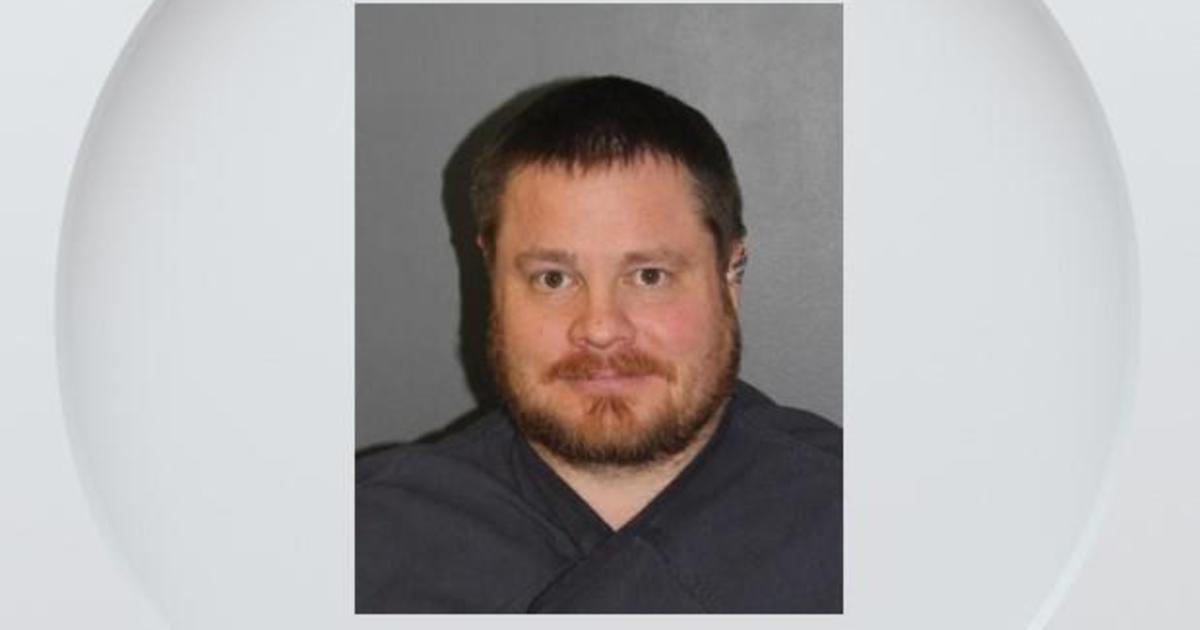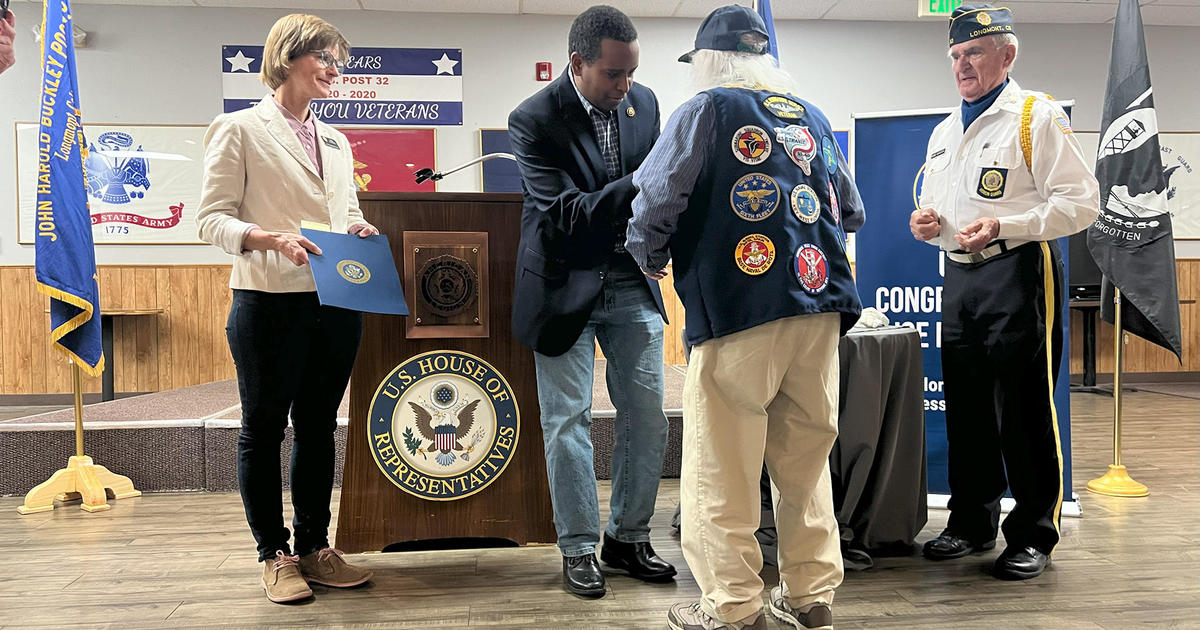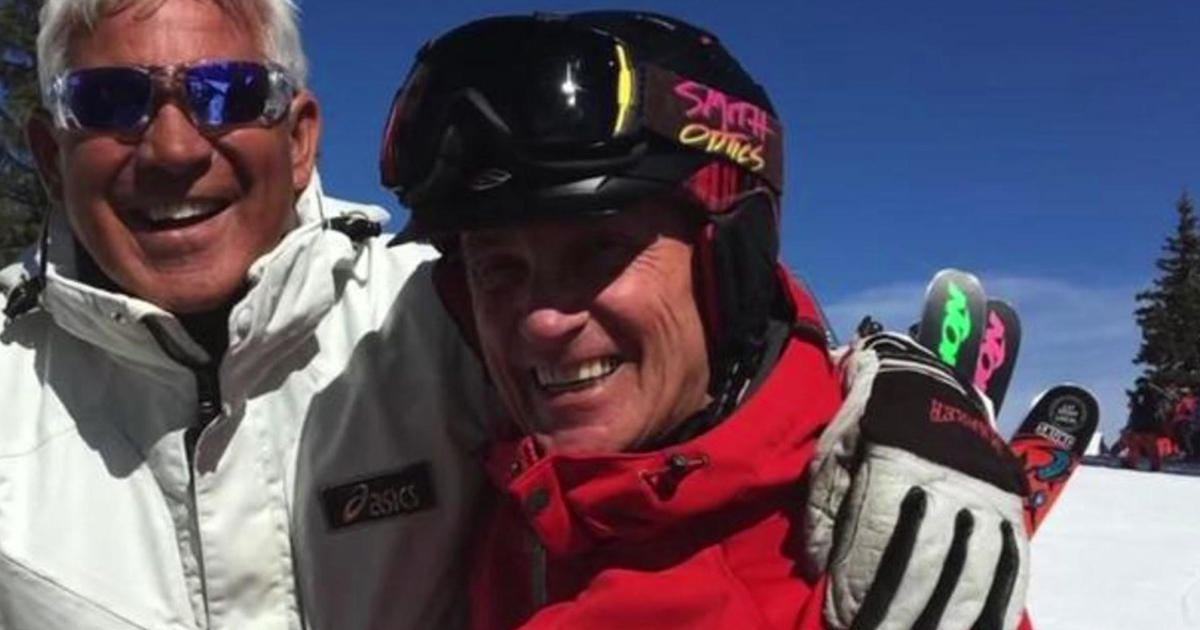Northern Colorado Red Cross Director Beats The Odds
FORT COLLINS, Colo. (AP) - When he got to prison, Erin Mounsey still couldn't tie his shoes.
A 1,500-degree explosion delivered a shock wave through his life, deforming his fingers, arms, legs, face - totaling 86 percent of his body. His girlfriend had left him, and he was sentenced to four years in prison after burglarizing her home in 2001.
Mounsey was a long way from holding the executive director post at the Northern Colorado Chapter of the American Red Cross.
"I was just this train wreck of emotion looking for something to crash into," said Mounsey, 39.
Prison was a "big time-out" to "find myself again," he said. Mounsey was released after serving three years and two months, he said. A short time later, he began volunteering for the American Red Cross, which assisted him and his family after the explosion.
"His is an exemplary story of a turnaround - of life turning somebody around and heading them in the right direction," said Patrick Love with Poudre Fire Authority.
Mounsey successfully completed parole and pursued opportunities with the Red Cross in Denver. He moved through the ranks to directing and reorganizing the transportation program before he was selected among about 40 prospects for the Fort Collins-based executive director position in 2007.
The Red Cross, a national humanitarian disaster-relief and emergency-assistance organization, was more welcoming to convicted felons in 2004. Today, people like Mounsey have a tougher time getting hired as volunteers. They're subjected to a mandatory background check and increased scrutiny.
"I think it's wrong," Northern Colorado Chapter board member Scott Baker said. "Any industry should look at a person for what they are, not what they were."
American Red Cross spokesman Roger Lowe said in the wake of Hurricane Katrina in 2005, the "number of spontaneous volunteers" demonstrated a need for background screening to be fully implemented by mid-2006.
"Red Cross volunteers are put in positions of trust in the community," he said, adding that these include coordinating shelter, health and safety-related needs or working a blood drive.
Baker was on the committee that hired Mounsey, and he said there was controversy when the decision was made in 2007.
"At least one board member felt that it was inappropriate," Baker said. "It took a lot of soul searching for all of us on that committee to recommend him to the board. We saw a lot of potential in Erin."
Five years later, Mounsey is well respected in the community. He's gotten married and he has been able to help many people.
Those who know him are quick to remark of his seemingly boundless energy.
"It's good to be busy in life," he said. "So that pain at the end of the day, it's OK because we made a difference."
And Mounsey knows pain. He was put into a medically-induced coma for two months after the October 1999 accident, and he awoke with a mutilated body.
He was working with then-girlfriend, Holly Nagler, to refinish floors in a home they shared in Durango. Lacquer-thinner fumes caught a spark and the explosion was "like being inside a gas oven when it turns on," Mounsey said.
He escaped through a window before paramedics arrived, but the flash-fire had already delivered severe burns to his flesh. He was given a less than 10 percent chance of survival.
When he saw his face looked "like Freddie Krueger looking back at me in the mirror," he wanted to die.
A psychiatrist stayed by his side for days.
"She said, 'Get over yourself already,'" he said.
Mounsey pressed on, then developed problems with substance abuse.
The residence he would burglarize around New Year's Day 2001 belonged to Nagler, who was granted a restraining order against him after he threatened her. She left him after the explosion, which left her with less-debilitating injuries.
Mounsey said he admits what he did was wrong, but he was simply there to recover his belongings.
While in prison, he said people were pessimistic, telling him it would be impossible to make it through five years of parole. Guards didn't treat him any differently than anyone else despite his disabilities.
In jail, the highlight of his day was the chance to get outside for fresh air. But by the time he got his shoes on, the door would frequently have closed and he would have to wait another day to leave the building.
The fire left Mounsey missing fingertips and an index finger. It took him two years to use buttons again, and it was 2½ years before he could tie his own shoes.
But he said it helped his recovery to be treated like anyone else.
"I had a big change of perspective," he said.
Today, Mounsey is able to ride a snowboard and a bicycle. His finger can't accommodate a wedding ring. Instead, he wears a metal bracelet.
He keeps busy with work.
"He is not only energetic, but he tries to stay involved as much as possible to see through successes for not only the agency, but all the clients they serve," Love said. "I know that he is somebody who puts all of his heart and soul into making the local chapter successful."
But Mounsey's pain comes back every night. Staples buried in his arms sometimes reach bone; a previous bacterial infection in his right shin delivers electric pain, and pulsating pains in either leg are a regular occurrence.
Asked what keeps him going, Mounsey said, "Desperation."
The office he runs has three paid staff with more than 300 volunteers, and a core of about 15 to 20 regular volunteers. He has helped coordinate re-sources for such incidents as the recovery from a tornado incident in 2008 that affected Windsor residents.
Former Northern Colorado Red Cross board member Anna Olsen said his "sincerity" led to his assignment to the post.
"He changed his life, and he wanted to make a difference," she said.
The past two years, he received awards from the Mile High Region of the Red Cross for excellence in management.
"I like to think I'm an example of what can happen when people are given an opportunity," Mounsey said. "I hate to think what life would be like without that opportunity.
"It would be easy for the world to discriminate against me."
- By ROBERT ALLEN, The Coloradoan
(© Copyright 2012 The Associated Press. All Rights Reserved. This material may not be published, broadcast, rewritten or redistributed.)



